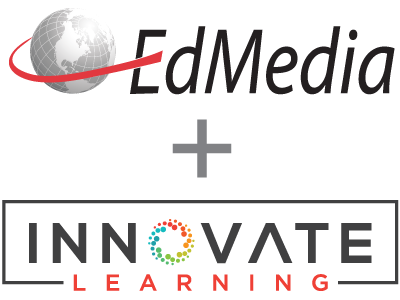
An Investigation of Student Thinking from Concept Mapping of Reading Material
PROCEEDINGS
Kevin Oliver, North Carolina State University, United States
EdMedia + Innovate Learning, in Vancouver, Canada ISBN 978-1-880094-62-4 Publisher: Association for the Advancement of Computing in Education (AACE), Waynesville, NC
Abstract
A fall 2006 case study with one teacher and her sixth grade class investigated the range of thinking skills supported by electronic concept mapping of reading material. Only three students out of 22 were reading at or above grade level. Individual students were given three short readings, a pre-selected set of terms to map for each, and superordinate headers from which to begin building their electronic concept maps. Students were generally successful at classifying information under superordinate headings, but they struggled to identify interrelated concept sets and to write link words indicative of relational thinking. Revisions to the implementation strategy are suggested, including the requirement that students circle terms on their readings before they start mapping to assist with finding specific details in resource material. Collaborative mapping is recommended as one strategy to help students move up the thinking scale from basic skills to more complex processes.
Citation
Oliver, K. (2007). An Investigation of Student Thinking from Concept Mapping of Reading Material. In C. Montgomerie & J. Seale (Eds.), Proceedings of ED-MEDIA 2007--World Conference on Educational Multimedia, Hypermedia & Telecommunications (pp. 2593-2602). Vancouver, Canada: Association for the Advancement of Computing in Education (AACE). Retrieved August 6, 2024 from https://www.learntechlib.org/primary/p/25738/.
© 2007 Association for the Advancement of Computing in Education (AACE)
Keywords
References
View References & Citations Map- Cardellini, L. (2004). Conceiving of concept maps to foster meaningful learning: An interview with Joseph D. Novak. Journal of Chemical Education, 81(9), 1303-1308.
- Chang, K.E., Sung, Y.T., & Chen, S.F. (2001). Learning through computer-based concept mapping with scaffolding aid. Journal of Computer-Assisted Learning, 17(1), 21-33.
- Cheung, L.S. (2006). A constructivist approach to designing computer-supported concept-mapping environment. International Journal of Instructional Media, 33(2), 153-164.
- DeSimone, C., Schmid, R.F., & McEwen, L.A. (2001). Supporting the learning process with collaborative concept mapping using computer-based communication tools and processes. Educational Research and Evaluation, 7(2-3), 263-283.
- Germann, P., & Young, K. (2001). Heightening reflection through dialogue: A case for electronic journaling and electronic concept mapping in science. Contemporary Issues in Technology and Teacher Education, 1(3).
- Guastello, E.F., Beasley, T.M., & Sinatra, R.C. (2000). Concept mapping effects on science content comprehension of lowachieving inner-city seventh graders. Remedial and Special Education, 21(6), 356-364.
- Hay, D.B., & Kinchin, I.M. (2006). Using concept maps to reveal conceptual typologies. Education+ Training, 48(2-3), 127142.
- IHMC. (2006). Cmaptools: Knowledge modeling kit. Retrieved online February 14, 2007, from http://cmap.ihmc.us/
- Kinchin, I.M. (2005). Reading scientific papers for understanding: Revisiting Watson and Crick (1953). Journal of Biological Education, 39(2), 73-75.
- Kinchin, I.M., De-Leij, F.A.A.M., & Hay, D.B. (2005). The evolution of a collaborative concept mapping activity for undergraduate microbiology students. Journal of Further and Higher Education, 29(1), 1-14.
- Novak, J.D., & Gowin, D.B. (1984). Learning how to learn. New York: Cambridge University Press.
- Presseisen, B.Z. (2001). Thinking skills: Meanings and models revisited. In A.L. Costa (Ed.), Developing Minds: A Resource Book for Teaching Thinking (3rd ed., pp. 47-53). Alexandria, VA: ASCD
- Ruiz-Primo, M.A., Shavelson, R.J., & Li, M., & Schultz, S.E. (2001). On the validity of cognitive interpretations of scores from alternative concept-mapping techniques. Educational Assessment, 7(2), 99-141.
- Ruiz-Primo, M.A., & Shavelson, R.J. (1996). Problems and issues in the use of concept maps in science assessment. Journal of Research in Science Teaching, 33(6), 569-600.
- Tergan, S.O. (2006). Mapping and managing knowledge and information in resource-based learning. Innovations in Education and Teaching International, 43(4), 327-336.
These references have been extracted automatically and may have some errors. Signed in users can suggest corrections to these mistakes.
Suggest Corrections to References